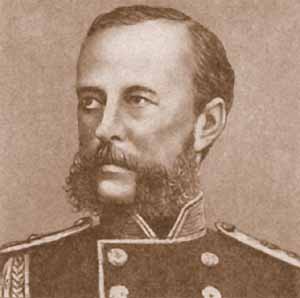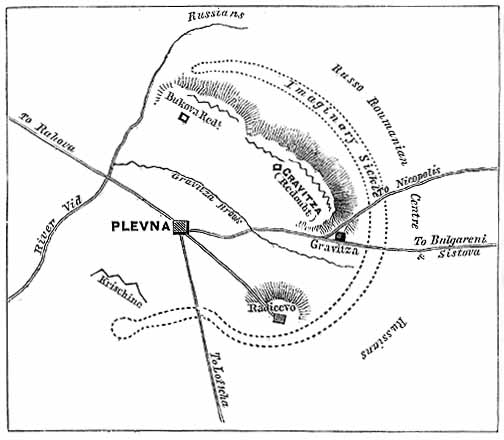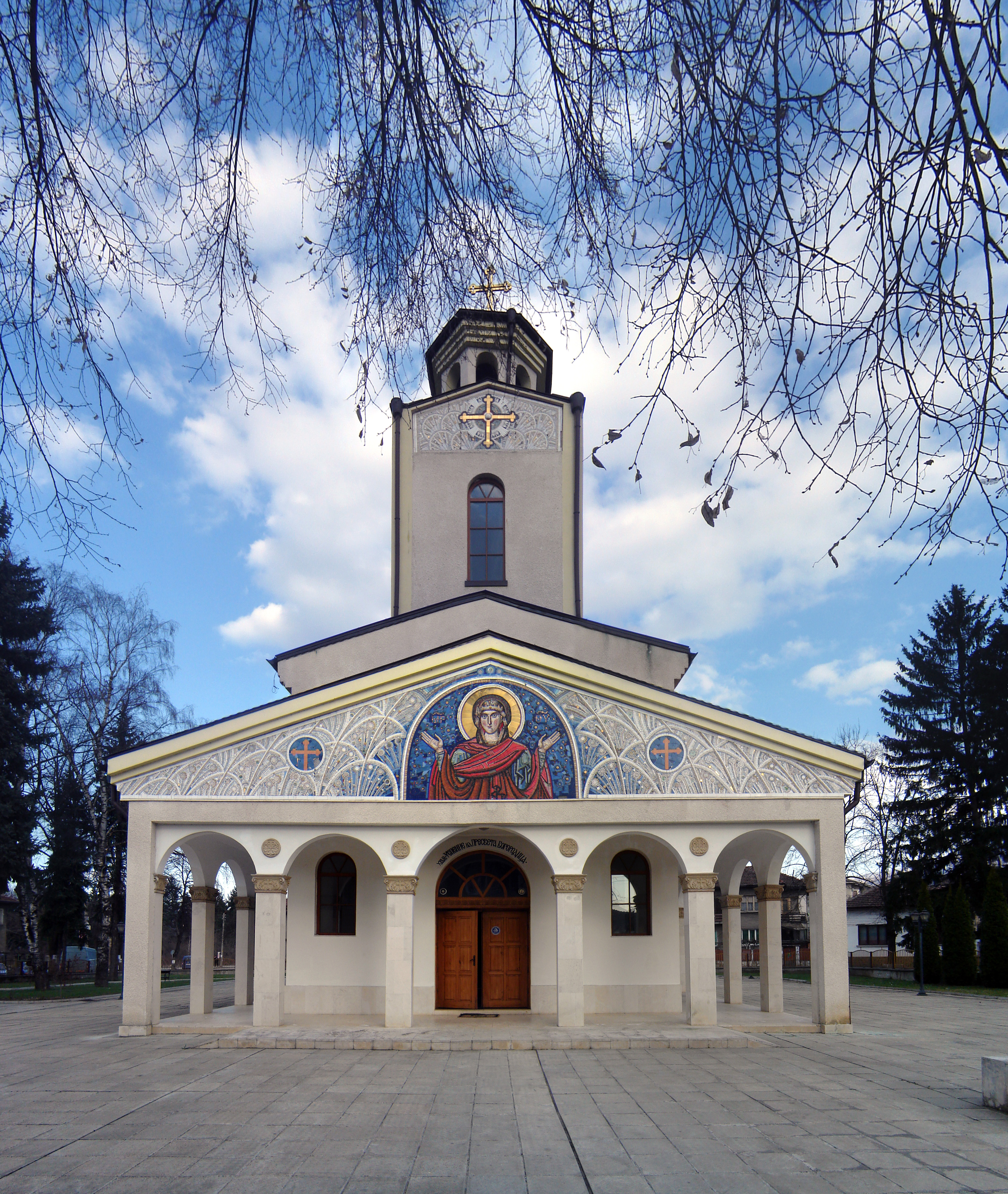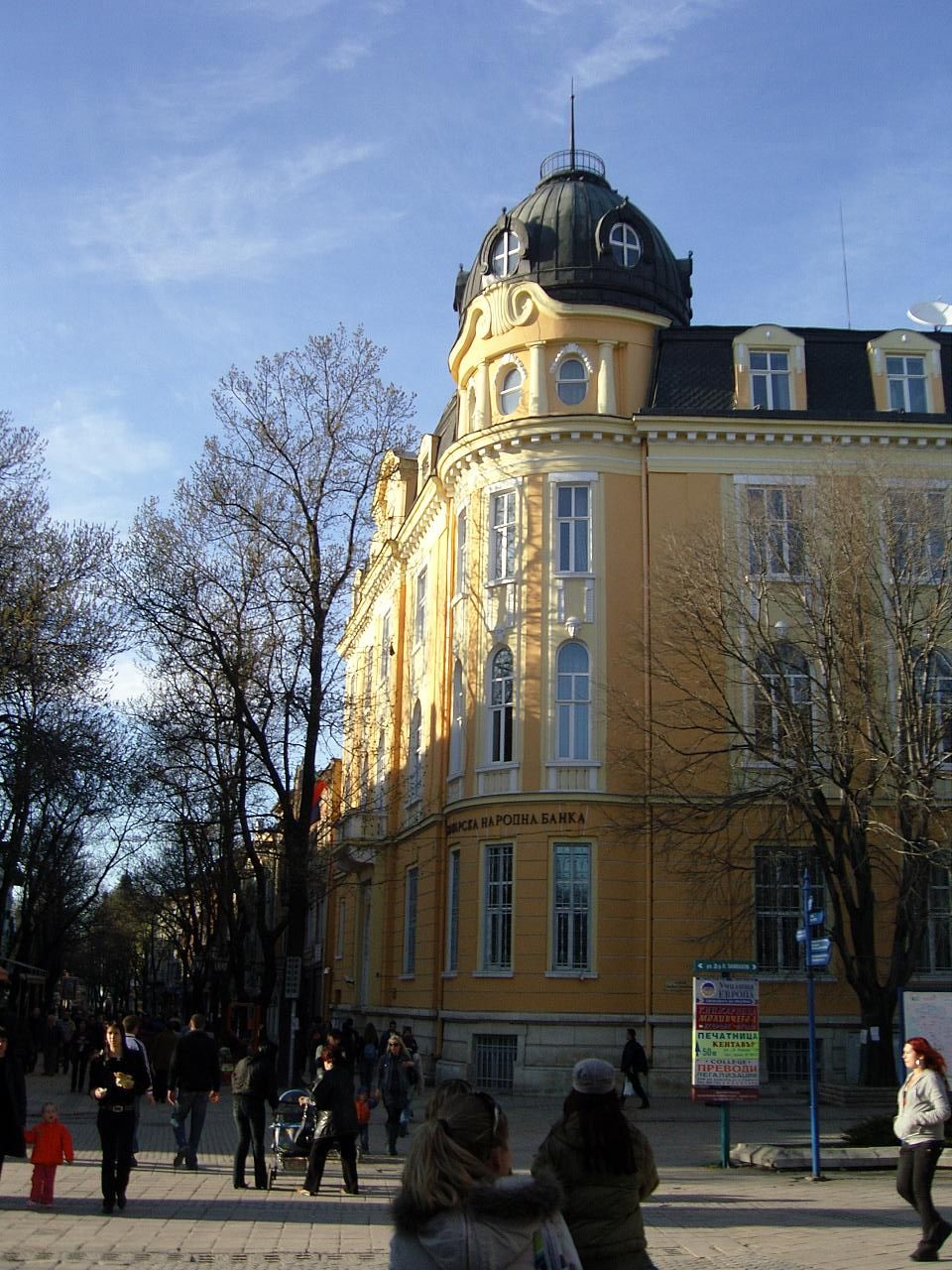|
Battle Of Lovcha
The Battle of Lovcha, ''or Loftcha'' (today Lovech), took place during the siege of Plevna. Russian forces successfully reduced the fortress at Lovcha, which had protected Plevna's communication and supply lines. It was a part of the Russo-Turkish War of 1877–1878. Battle In July 1877, shortly after the siege of Plevna began, the garrison's commander, Osman Pasha, received 15 battalions of reinforcements from Sofia. He chose to use these reinforcements to fortify Lovcha, which protected his lines of support running from Orchanie (present-day Botevgrad) to Plevna. After the failure of the first two attempts to storm the city of Plevna, the Russians brought up significant reinforcements, and the investing army now totaled 100,000. Intent on cutting Osman's communications and supply lines, General Alexander Imeretinsky was sent out with 22,703 Russian troops to seize Lovcha. On 1 September Generals Alexander Imerentinsky, Mikhail Skobelev, and Vladimir Dobrovolsky reac ... [...More Info...] [...Related Items...] OR: [Wikipedia] [Google] [Baidu] |
Russo-Turkish War (1877–1878)
The Russo-Turkish War (1877–1878) was a conflict between the Ottoman Empire and a coalition led by the Russian Empire which included United Principalities of Moldavia and Wallachia, Romania, Principality of Serbia, Serbia, and Principality of Montenegro, Montenegro. Precipitating factors included the Russian goals of recovering territorial losses endured during the Crimean War of 1853–1856, re-establishing itself in the Black Sea and supporting the political movement attempting to free Balkan nations from the Ottoman Empire. The Romanian army had around 114,000 soldiers in the war. In Romania the war is called the Russo-Romanian-Turkish War (1877–1878) or the Romanian War of Independence, Romanian War of Independence (1877–1878). The Russian-led coalition won the war, pushing the Ottomans back all the way to the gates of Constantinople, leading to the intervention of the Western European great powers. As a result, Russia succeeded in claiming provinces in the Caucasus, n ... [...More Info...] [...Related Items...] OR: [Wikipedia] [Google] [Baidu] |
Siege Of Plevna
The siege of Plevna or Pleven, was a major battle of the Russo-Turkish War of 1877–1878, fought by the joint army of the Russian Empire and the Kingdom of Romania against the Ottoman Empire. After the Russian army crossed the Danube at Svishtov, it began advancing towards the centre of modern Bulgaria, with the aim of crossing the Balkan Mountains to Constantinople, avoiding the fortified Turkish fortresses on the Black Sea coast. The Ottoman army led by Osman Pasha, returning from Serbia after a conflict with that country, was massed in the fortified city of Pleven, a city surrounded by numerous redoubts, located at an important road intersection. After two unsuccessful assaults, in which he lost valuable troops, the commander of the Russian troops on the Balkan front, Grand Duke Nicholas of Russia insisted by telegram on the help of his Romanian ally King Carol I. King Carol I crossed the Danube with the Romanian Army and was placed in command of the Russian-Roman ... [...More Info...] [...Related Items...] OR: [Wikipedia] [Google] [Baidu] |
History Of Lovech Province
History is the systematic study of the past, focusing primarily on the human past. As an academic discipline, it analyses and interprets evidence to construct narratives about what happened and explain why it happened. Some theorists categorize history as a social science, while others see it as part of the humanities or consider it a hybrid discipline. Similar debates surround the purpose of history—for example, whether its main aim is theoretical, to uncover the truth, or practical, to learn lessons from the past. In a more general sense, the term ''history'' refers not to an academic field but to the past itself, times in the past, or to individual texts about the past. Historical research relies on primary and secondary sources to reconstruct past events and validate interpretations. Source criticism is used to evaluate these sources, assessing their authenticity, content, and reliability. Historians strive to integrate the perspectives of several sources to develop a ... [...More Info...] [...Related Items...] OR: [Wikipedia] [Google] [Baidu] |
Military History Of Bulgaria
The Bulgarian Army (), also called Bulgarian Armed Forces, is the military of Bulgaria. The commander-in-chief is the president of Bulgaria. The Ministry of Defense is responsible for political leadership, while overall military command is in the hands of the Defense Staff, headed by the Chief of the Defense. There are three main branches of the Bulgarian military, named literally the Land Forces, the Air Forces and the Naval Forces (the term "Bulgarian Army" refers to them encompassed all together). Throughout history, the Army has played a major role in defending the country's sovereignty. Only several years after its inception in 1878, Bulgaria became a regional military power and was involved in several major wars – Serbo-Bulgarian War (1885), First Balkan War (1912–13), Second Balkan War (1913), First World War (1915–1918) and Second World War (1941–1945), during which the Army gained considerable combat experience. During the Cold War, the People's Republic of Bu ... [...More Info...] [...Related Items...] OR: [Wikipedia] [Google] [Baidu] |
1877 In Bulgaria
Events January * January 1 – Queen Victoria is proclaimed Empress of India by the Royal Titles Act 1876, introduced by Benjamin Disraeli, the Prime Minister of the United Kingdom . * January 8 – Great Sioux War of 1876: Battle of Wolf Mountain – Crazy Horse and his warriors fight their last battle with the United States Cavalry in Montana. * January 20 – The Conference of Constantinople ends, with Ottoman Turkey rejecting proposals of internal reform and Balkan provisions. * January 29 – The Satsuma Rebellion, a revolt of disaffected samurai in Japan, breaks out against the new imperial government; it lasts until September, when it is crushed by a professionally led army of draftees. February * February 17 – Major General Charles George Gordon of the British Army is appointed Governor-General of the Sudan. March * March 2 – Compromise of 1877: The 1876 United States presidential election is resolved with the selection of Rutherfor ... [...More Info...] [...Related Items...] OR: [Wikipedia] [Google] [Baidu] |
Battles Of The Russo-Turkish War (1877–1878)
A battle is an occurrence of combat in warfare between opposing military units of any number or size. A war usually consists of multiple battles. In general, a battle is a military engagement that is well defined in duration, area, and force commitment. An engagement with only limited commitment between the forces and without decisive results is sometimes called a skirmish. The word "battle" can also be used infrequently to refer to an entire operational campaign, although this usage greatly diverges from its conventional or customary meaning. Generally, the word "battle" is used for such campaigns if referring to a protracted combat encounter in which either one or both of the combatants had the same methods, resources, and strategic objectives throughout the encounter. Some prominent examples of this would be the Battle of the Atlantic, Battle of Britain, and the Battle of France, all in World War II. Wars and military campaigns are guided by military strategy, whereas batt ... [...More Info...] [...Related Items...] OR: [Wikipedia] [Google] [Baidu] |
Investment (military)
Investment is the military process of surrounding an enemy fort (or town) with armed forces to prevent entry or escape. It serves both to cut communications with the outside world and to prevent supplies and reinforcements from being introduced. A contravallation is a line of fortifications built by the attackers around the besieged fortification facing towards an enemy fort to protect the besiegers from sorties by its defenders and to enhance the blockade. The contravallation can be used as a base to launch assaults against the besieged city or to construct further earthworks nearer to the city. A circumvallation may be constructed if the besieging army is threatened by a field army allied to an enemy fort. It is a second line of fortifications outside the contravallation that faces away from an enemy fort. The circumvallation protects the besiegers from attacks by allies of the city's defenders and enhances the blockade of an enemy fort by making it more difficult to smuggl ... [...More Info...] [...Related Items...] OR: [Wikipedia] [Google] [Baidu] |
Botevgrad
Botevgrad ( ) is a town in western Bulgaria. It is located in Sofia Province and is close to Pravets. Botevgrad lies 47 km from Sofia. History and name The village was called Samundzhievo (Самунджиево) until it was elevated to town status at the end of 1865 under the name of Orhanie (Bulgarian language: Орхание; Ottoman Turkish: اورخانيه). On 1 December 1934 the town was named Botevgrad (Ботевград) after Hristo Botev. Geography Botevgrad and its hinterland are located in an elliptical valley with a total area of 5,066 km2. The municipality covers parts of the Western Stara Planina mountain — Razhana, Murgash, Bilo and Golyama Planina and some parts of the Northern Balkan. Vitinya Pass connecting Northern Bulgaria with Southern Bulgaria and the proximity of the capital contribute to its strategic location. Botevgrad municipality borders the following municipalities: Pravets, Etropole, Gorna Malina, Elin Pelin, Svoge, ... [...More Info...] [...Related Items...] OR: [Wikipedia] [Google] [Baidu] |
Sofia
Sofia is the Capital city, capital and List of cities and towns in Bulgaria, largest city of Bulgaria. It is situated in the Sofia Valley at the foot of the Vitosha mountain, in the western part of the country. The city is built west of the Iskar (river), Iskar river and has many mineral springs, such as the Sofia Central Mineral Baths. It has a humid continental climate. Known as Serdica in Classical antiquity, antiquity, Sofia has been an area of human habitation since at least 7000 BC. The recorded history of the city begins with the attestation of the conquest of Serdica by the Roman Republic in 29 BC from the Celtic settlement of Southeast Europe, Celtic tribe Serdi. During the decline of the Roman Empire, the city was raided by Huns, Visigoths, Pannonian Avars, Avars, and Slavs. In 809, Serdica was incorporated into the First Bulgarian Empire by Khan (title), Khan Krum and became known as Sredets. In 1018, the Byzantine Empire, Byzantines ended Bulgarian rule until 1194, ... [...More Info...] [...Related Items...] OR: [Wikipedia] [Google] [Baidu] |
Pleven
Pleven ( ) is the seventh most populous city in Bulgaria. Located in the northern part of the country, it is the administrative centre of Pleven Province, as well as of the subordinate Pleven municipality. It is the biggest economic center in Northwestern Bulgaria. At the 2021 census its population was 89,823. Internationally known for the siege of Plevna of 1877, today it is a major economic centre of the Bulgarian Northwest and Central North and the third largest city of Northern Bulgaria after Varna and Ruse. Name The name comes from the Slavic word ''plevnya'' ("barn") or from ''plevel'', meaning "weed", sharing the same root, and the Slavic suffix ''-en''. Geography Pleven is in an agricultural region in the middle of the Danubian Plain, the historical region of Moesia, surrounded by low limestone hills, the Pleven Heights. The city's central location in Northern Bulgaria defines its importance as a big administrative, economic, political, cultural and transport ce ... [...More Info...] [...Related Items...] OR: [Wikipedia] [Google] [Baidu] |
Osman Nuri Paşa
Osman Nuri Pasha (; 1832, Tokat, Ottoman Empire – 4 to 5 April 1900, Constantinople, Ottoman Empire), also known as Gazi Osman Pasha (), was an Ottoman Turkish field marshal. Being one of the most respected and decorated Ottoman pashas of all time, many songs have been written for him, and many places named after him. This is mainly because he held the Bulgarian town of Plevna for five months against superior Russo-Romanian forces in 1877 during the Russo-Turkish War, though the city eventually fell. Early life and education Osman Nuri was born into the prominent Muslim Turkish Yağcıoğulları family in the city of Tokat. His father was a civil worker who, soon after Osman's birth, was appointed to a position in the Ottoman capital, so the family moved to Constantinople (now Istanbul). Osman attended the Kuleli Military High School and then graduated from the Ottoman Military College in 1852 as a lieutenant, entering the Cavalry Arm at the beginning of the C ... [...More Info...] [...Related Items...] OR: [Wikipedia] [Google] [Baidu] |







